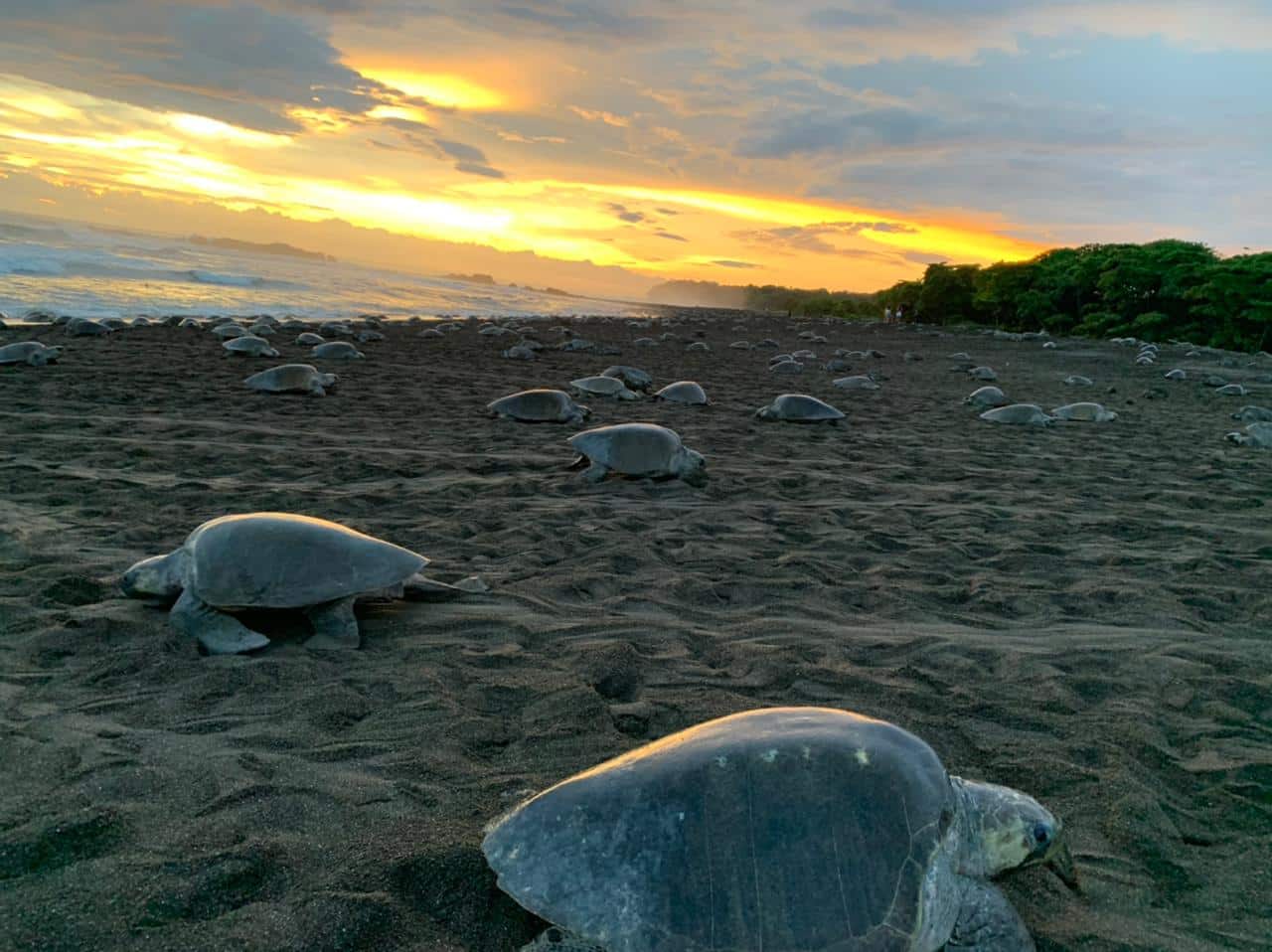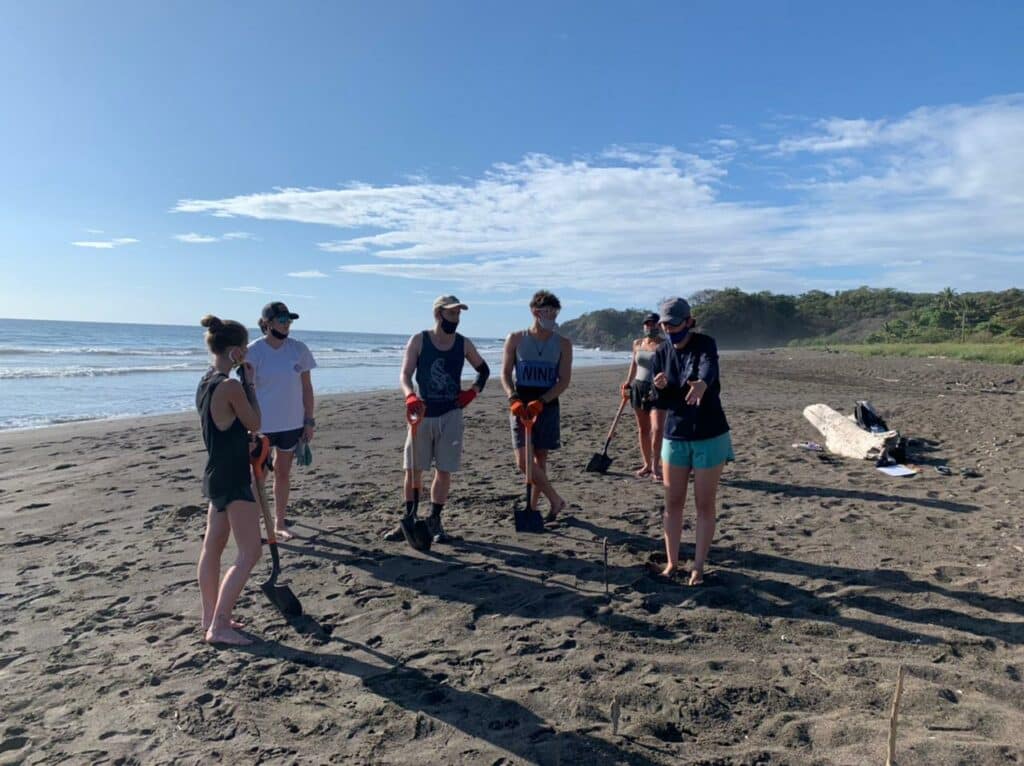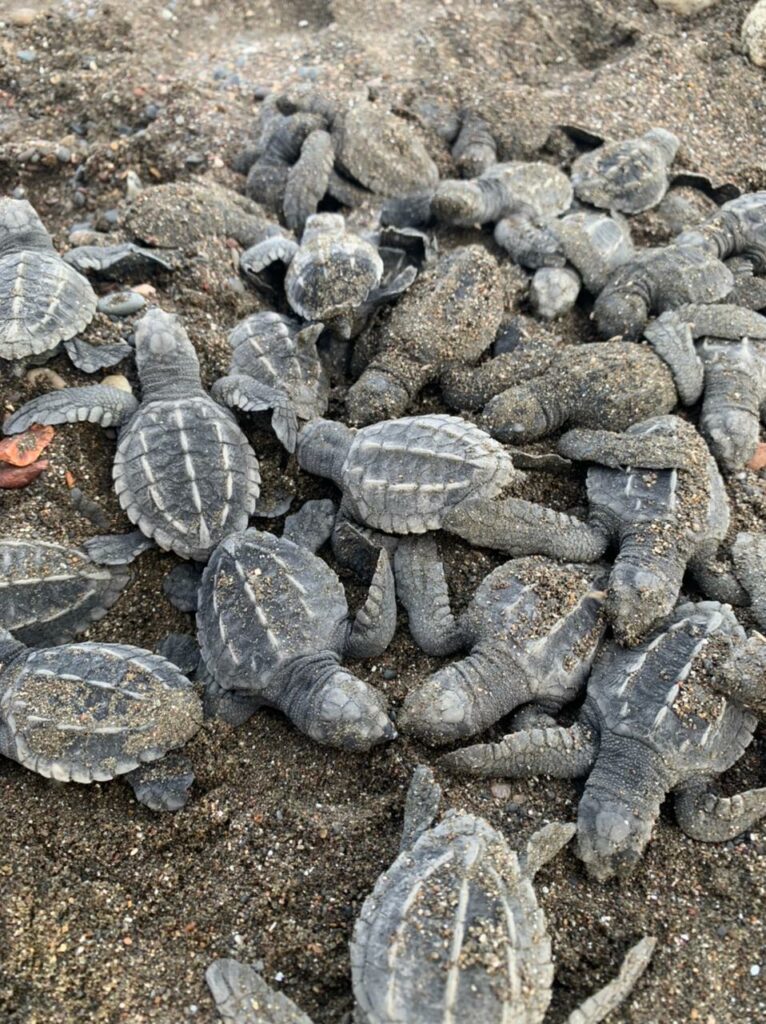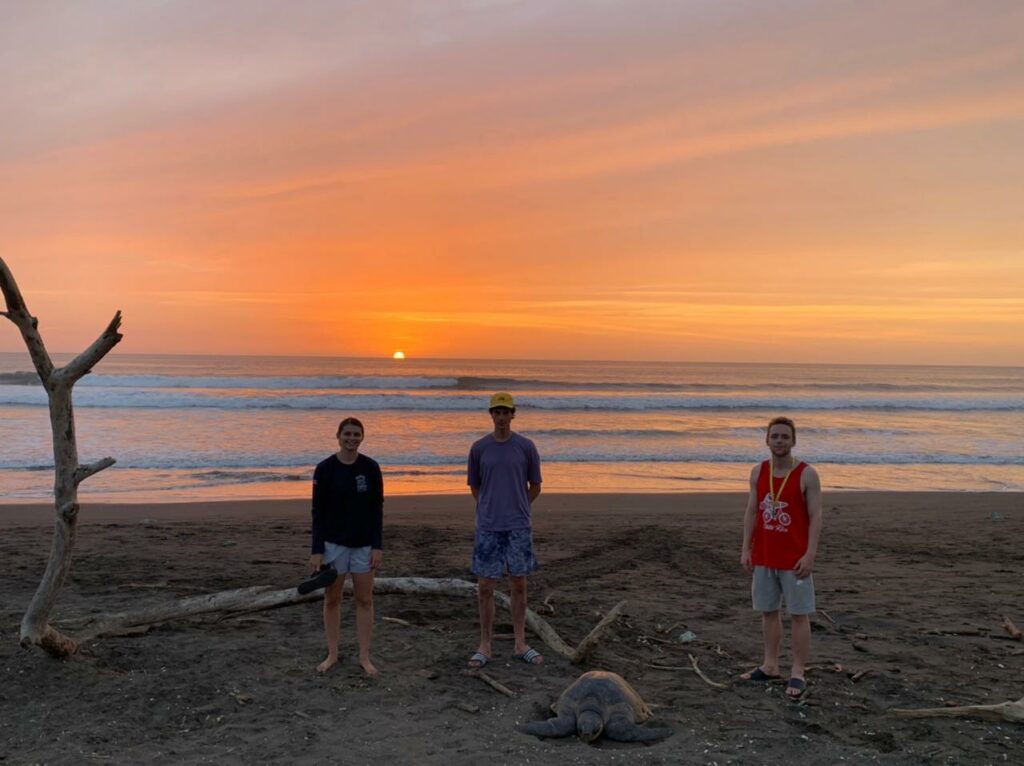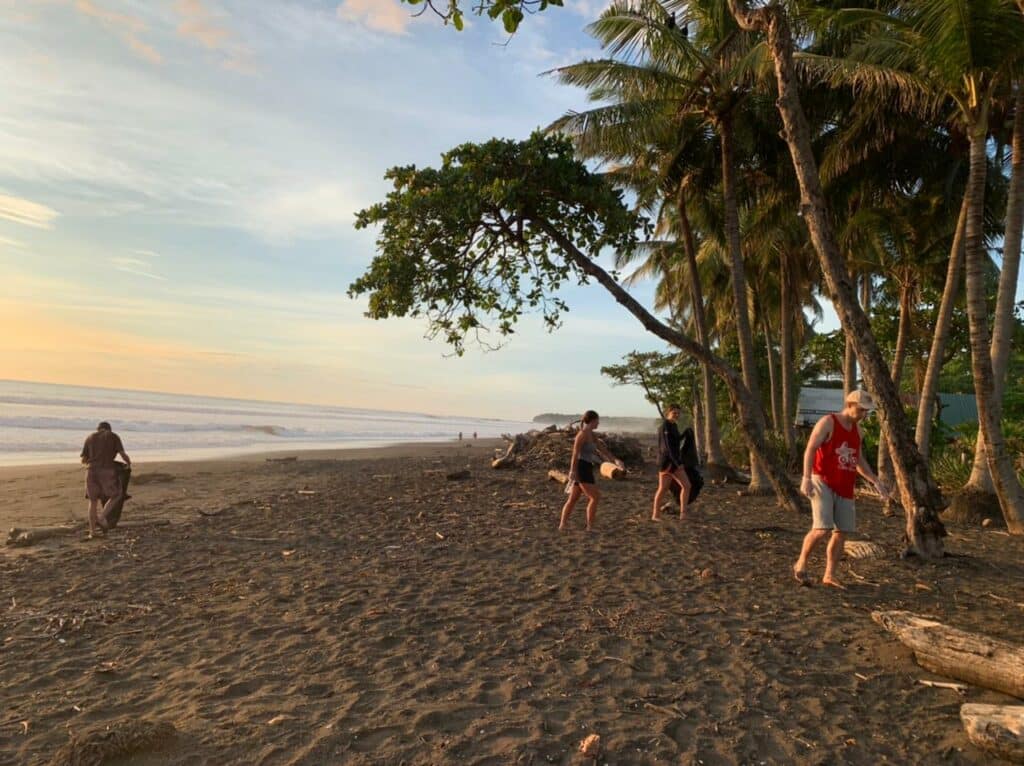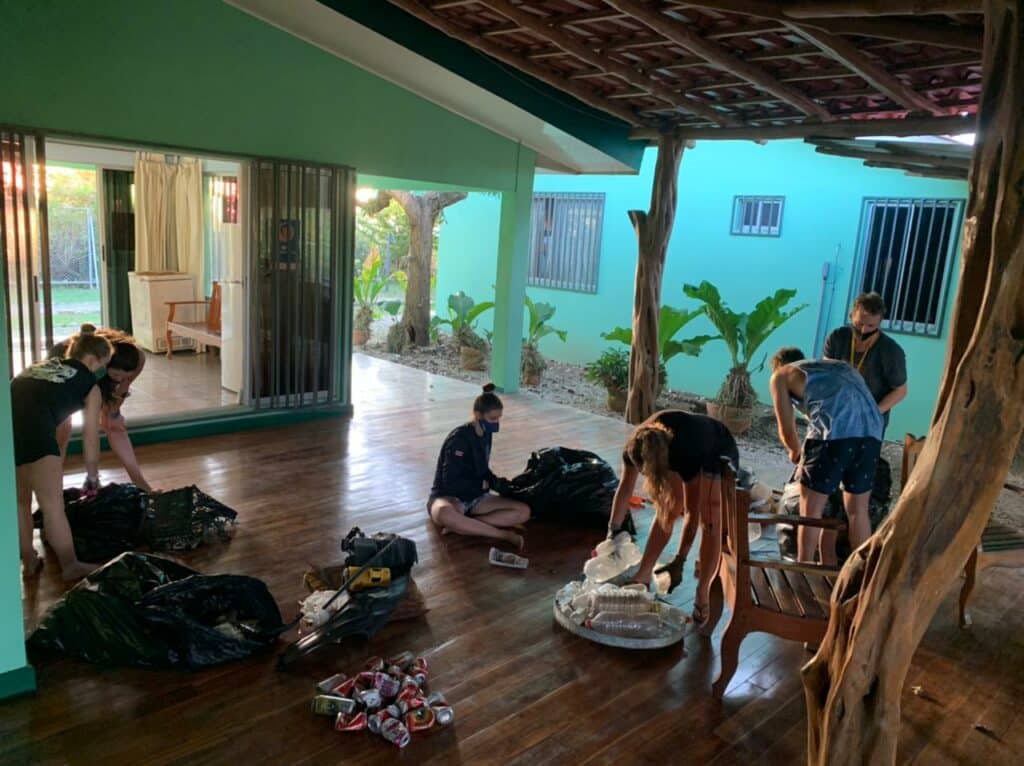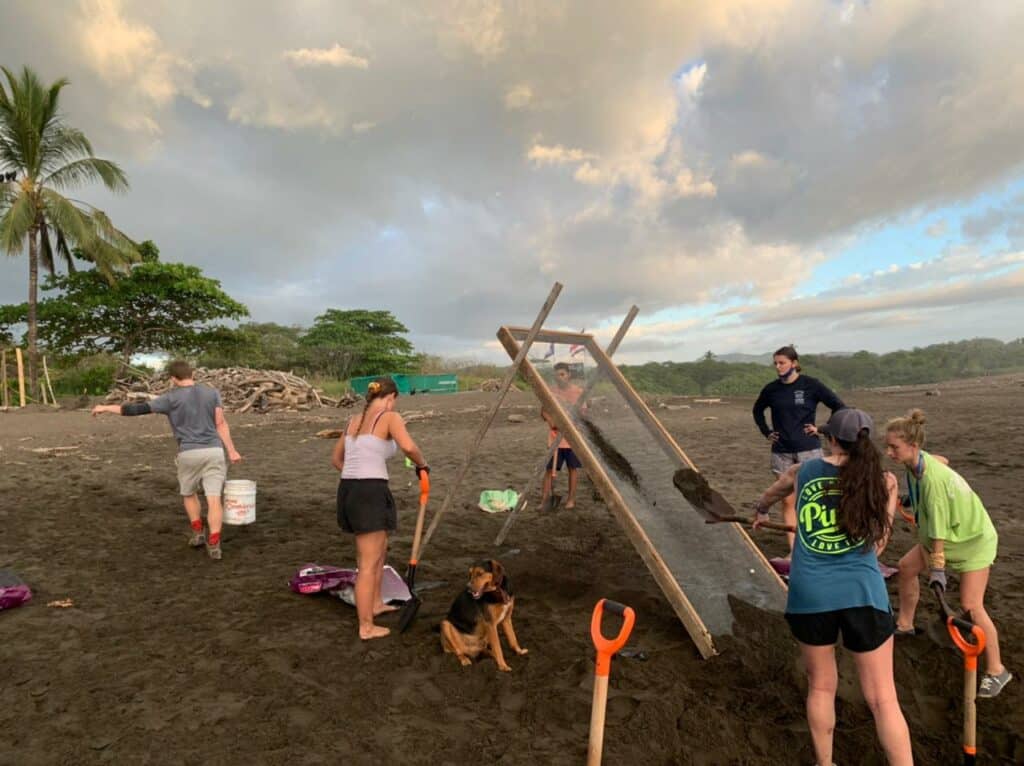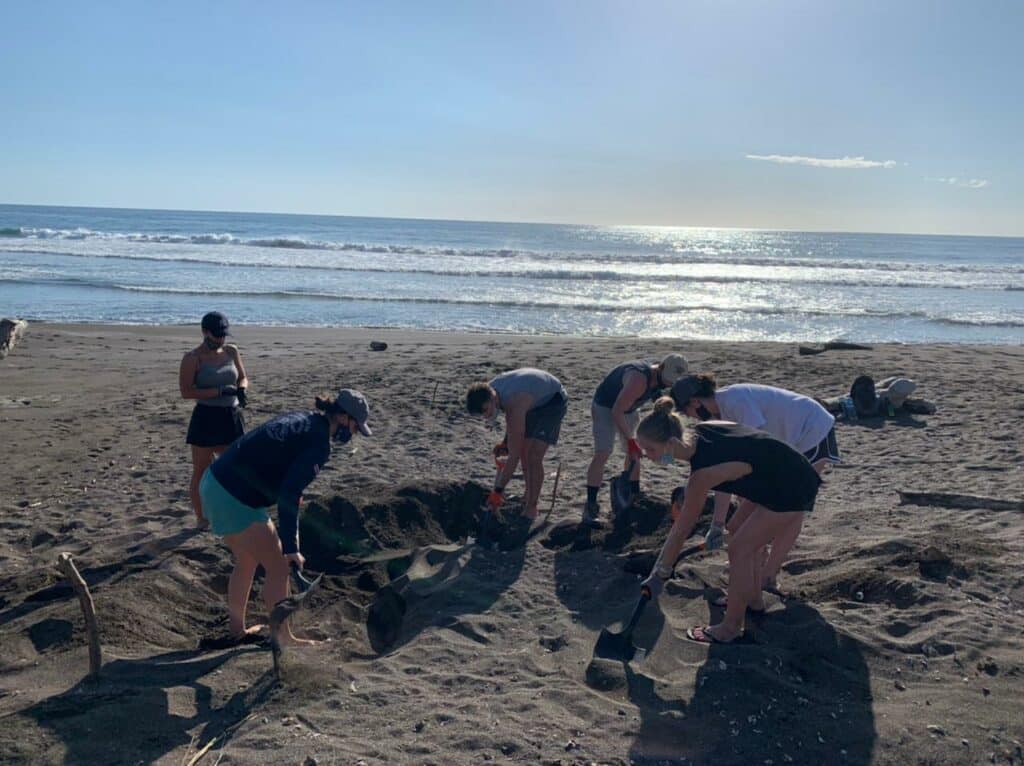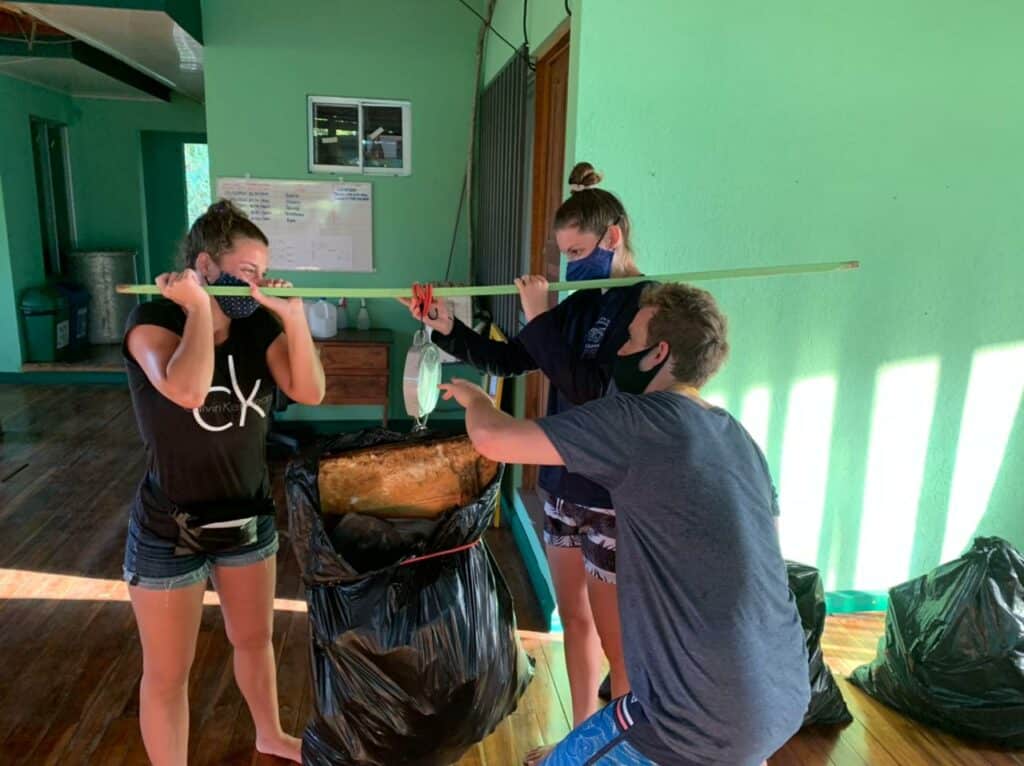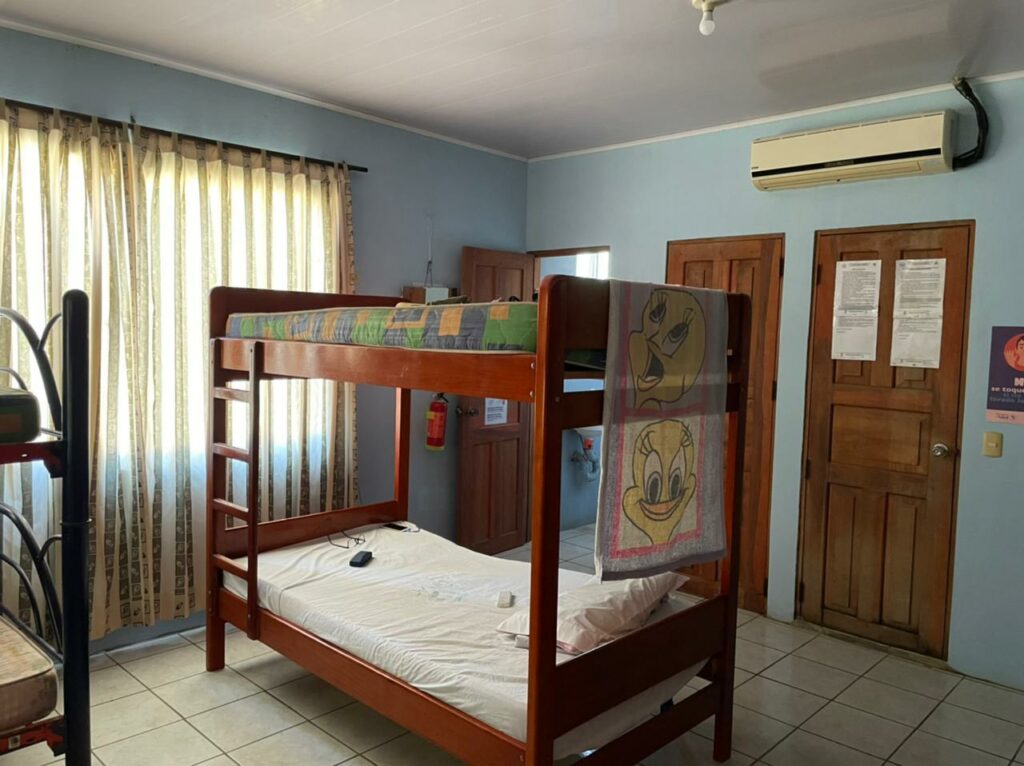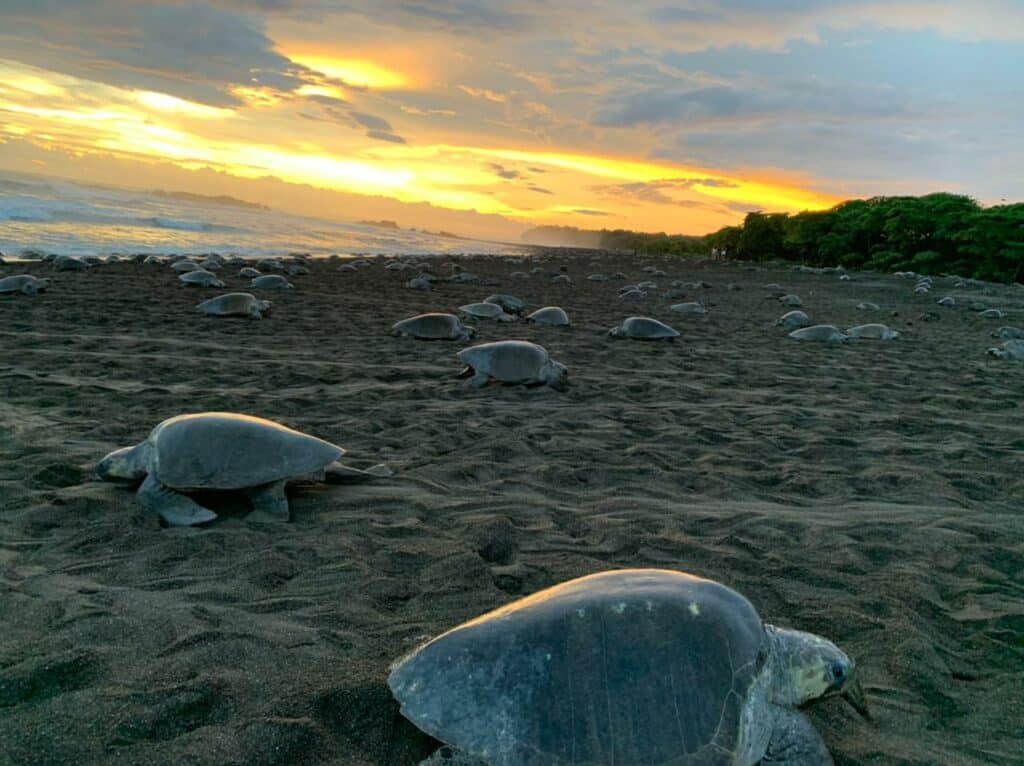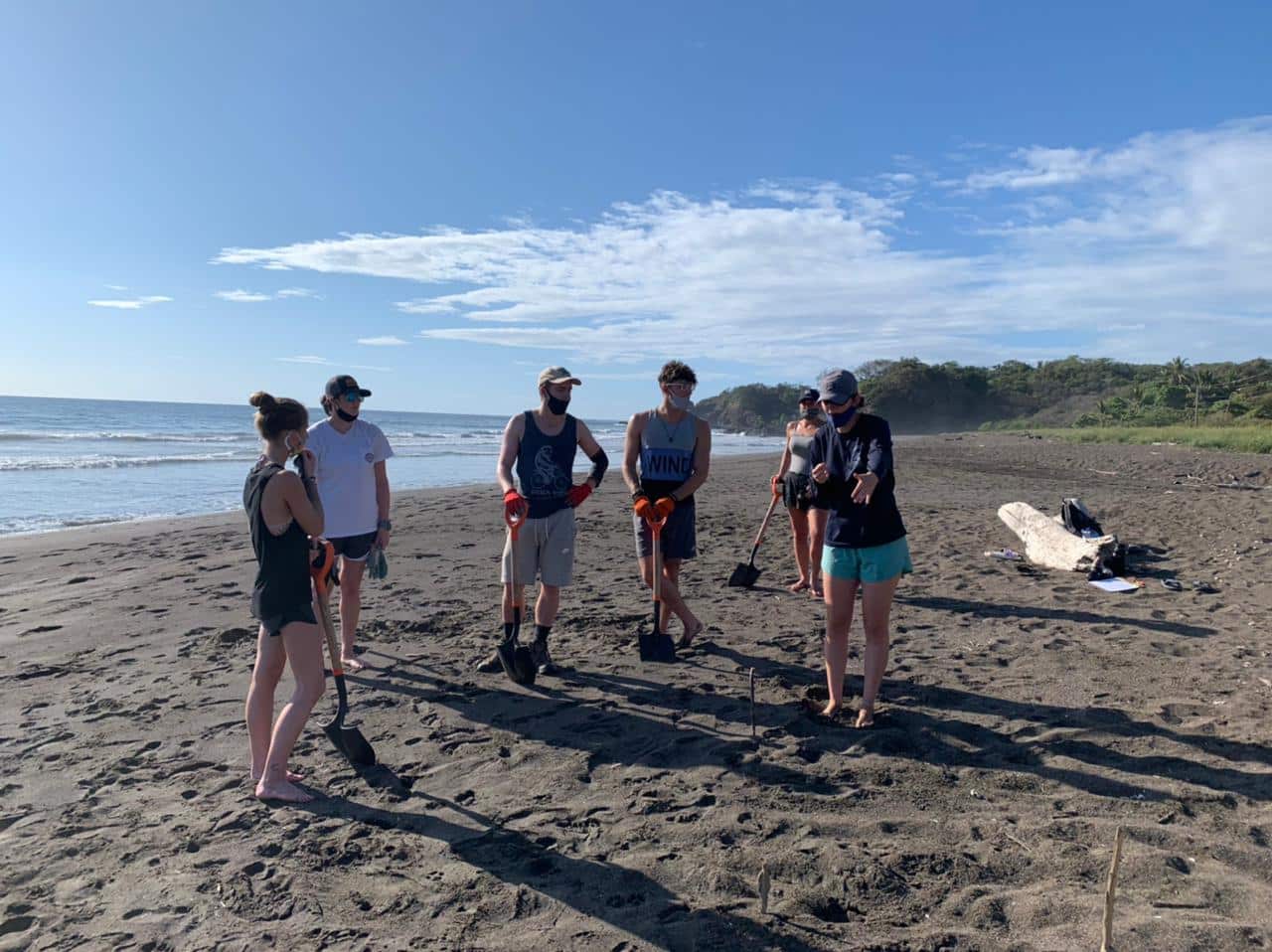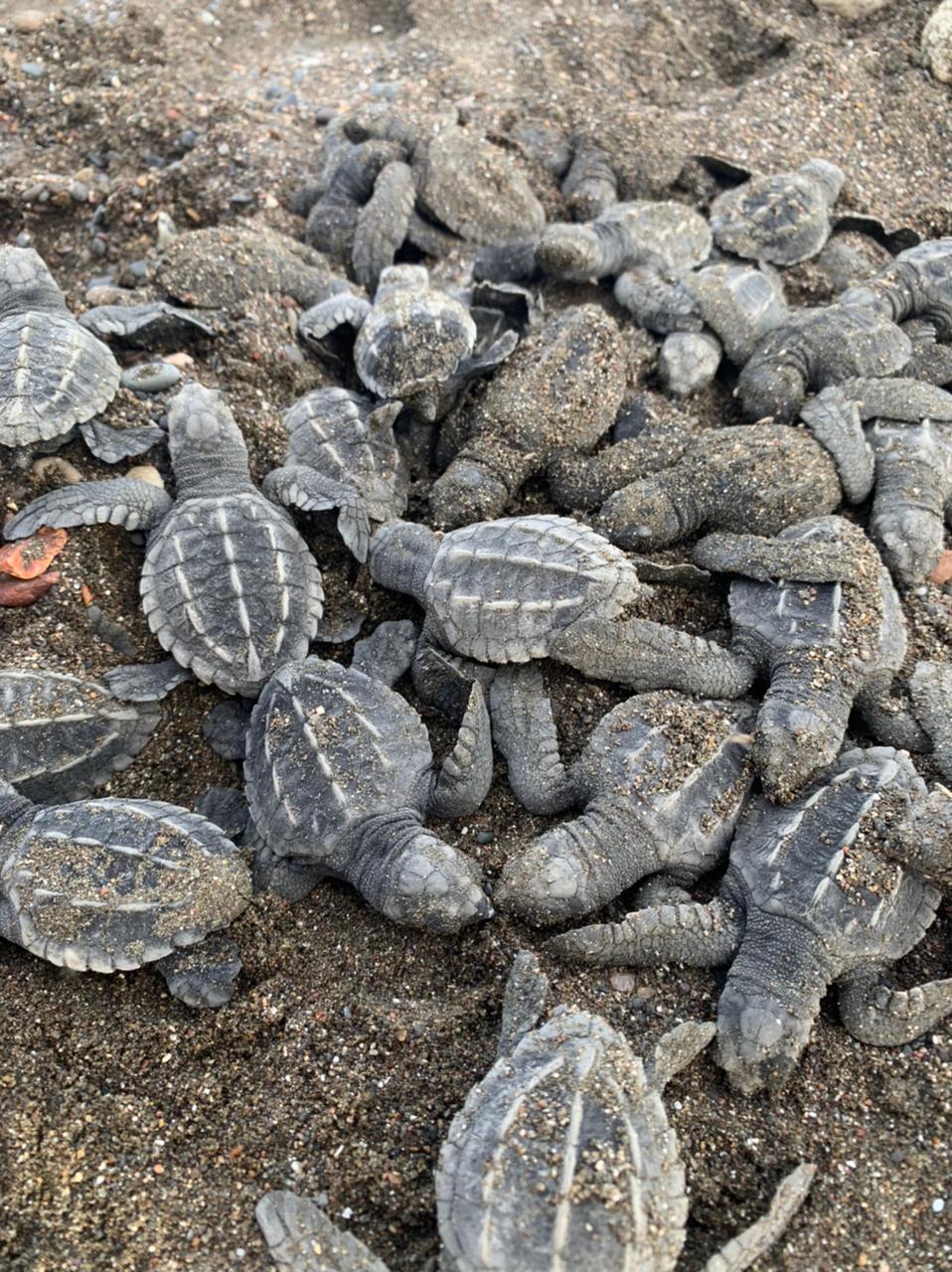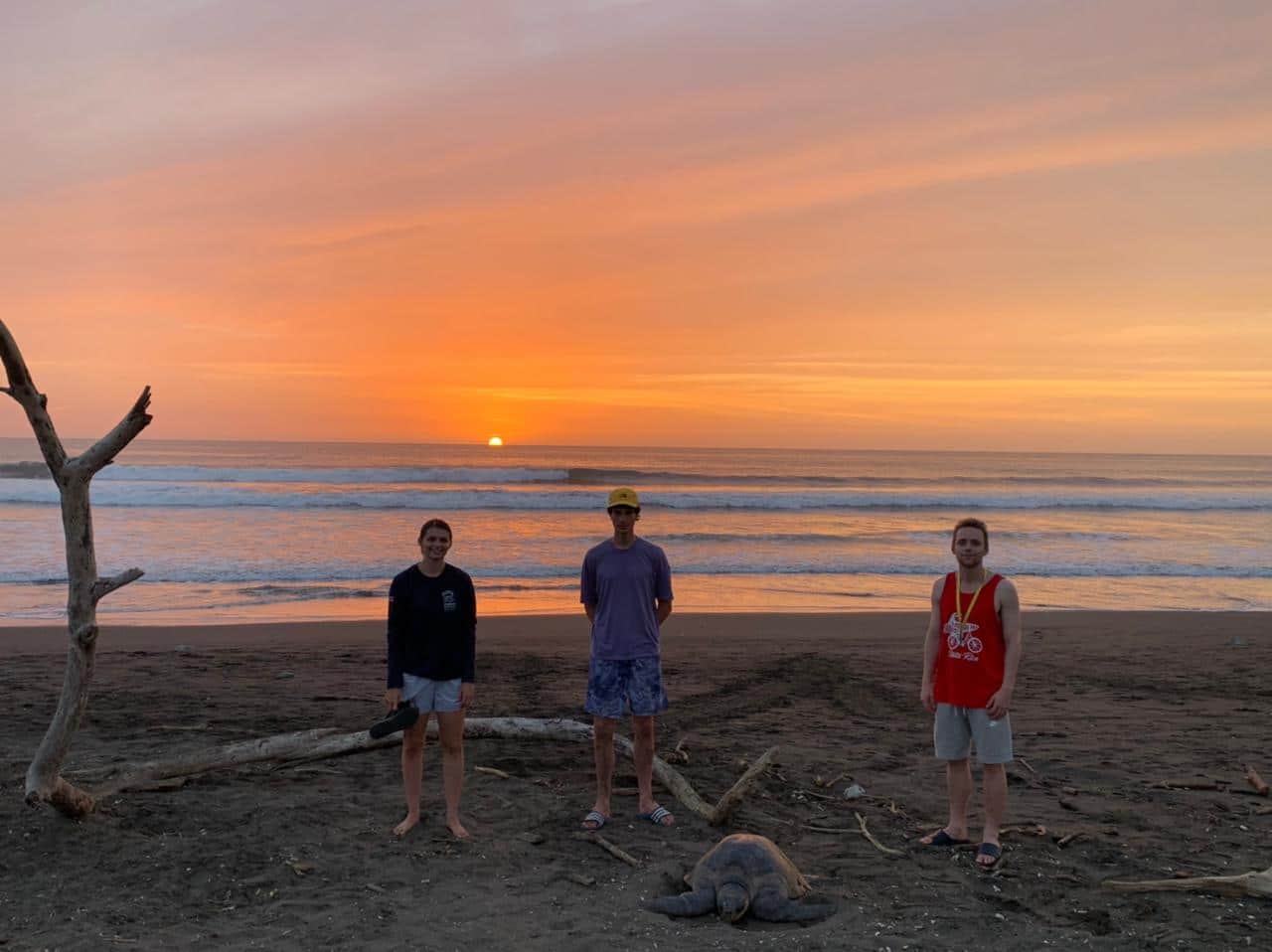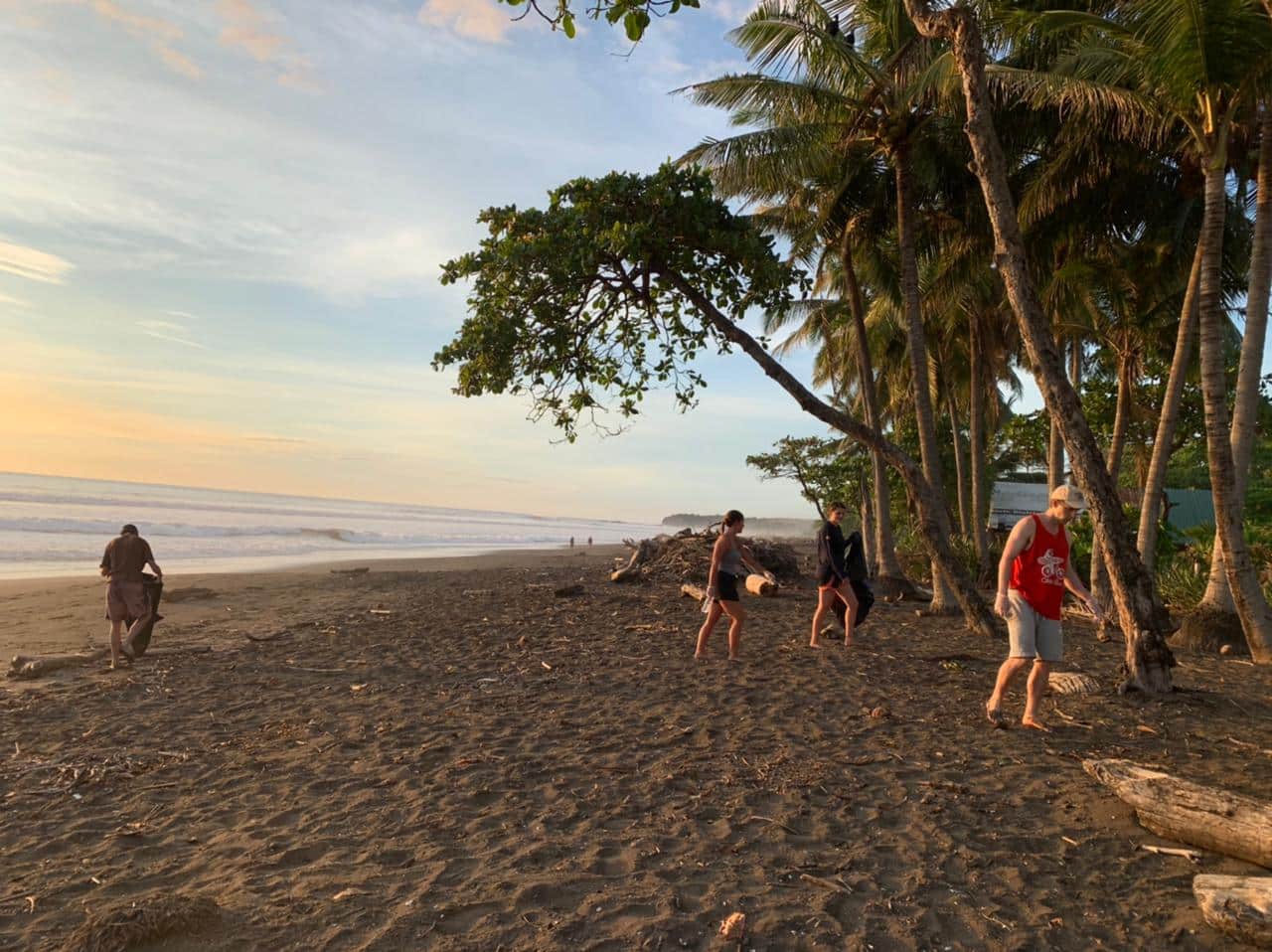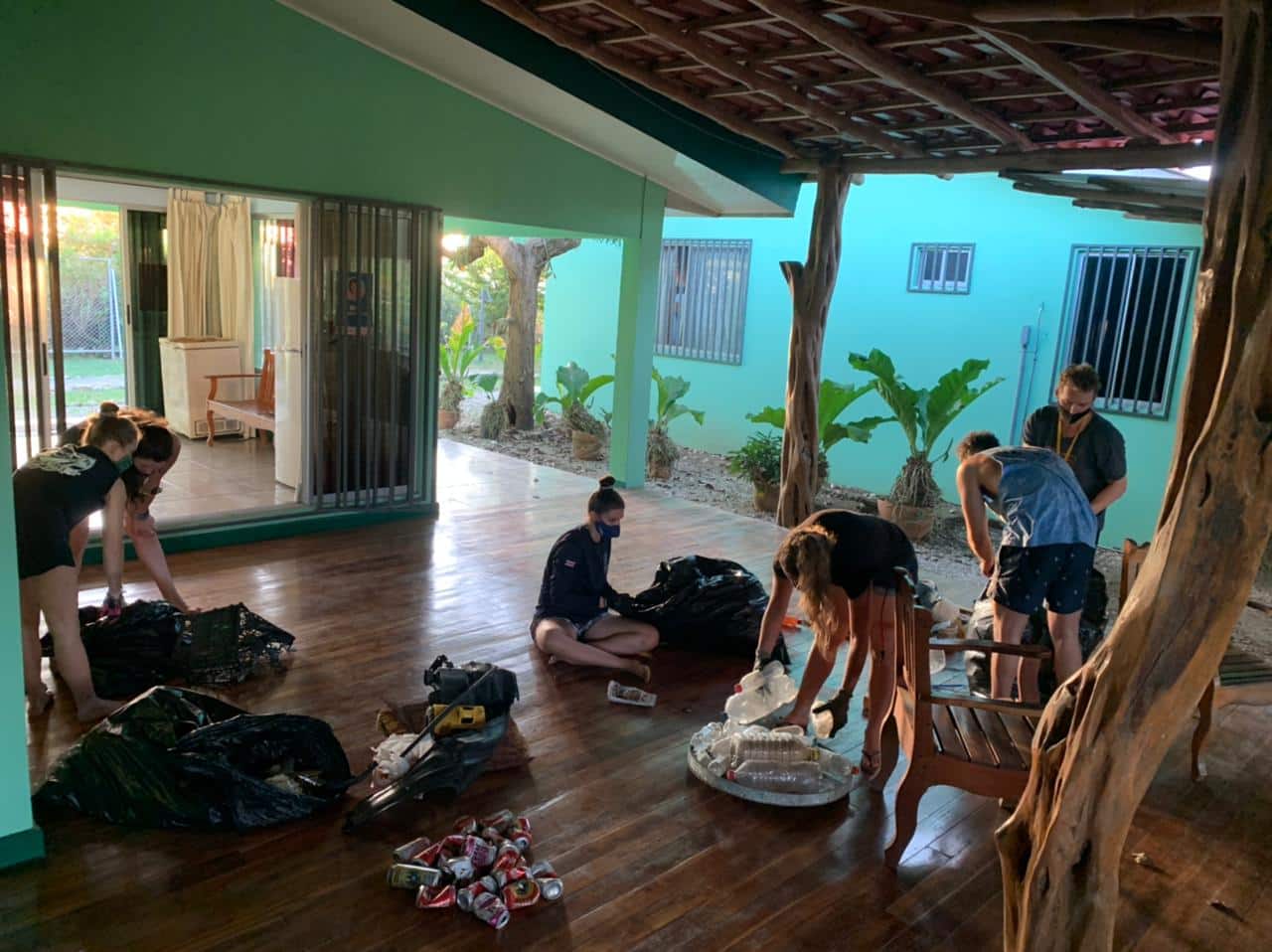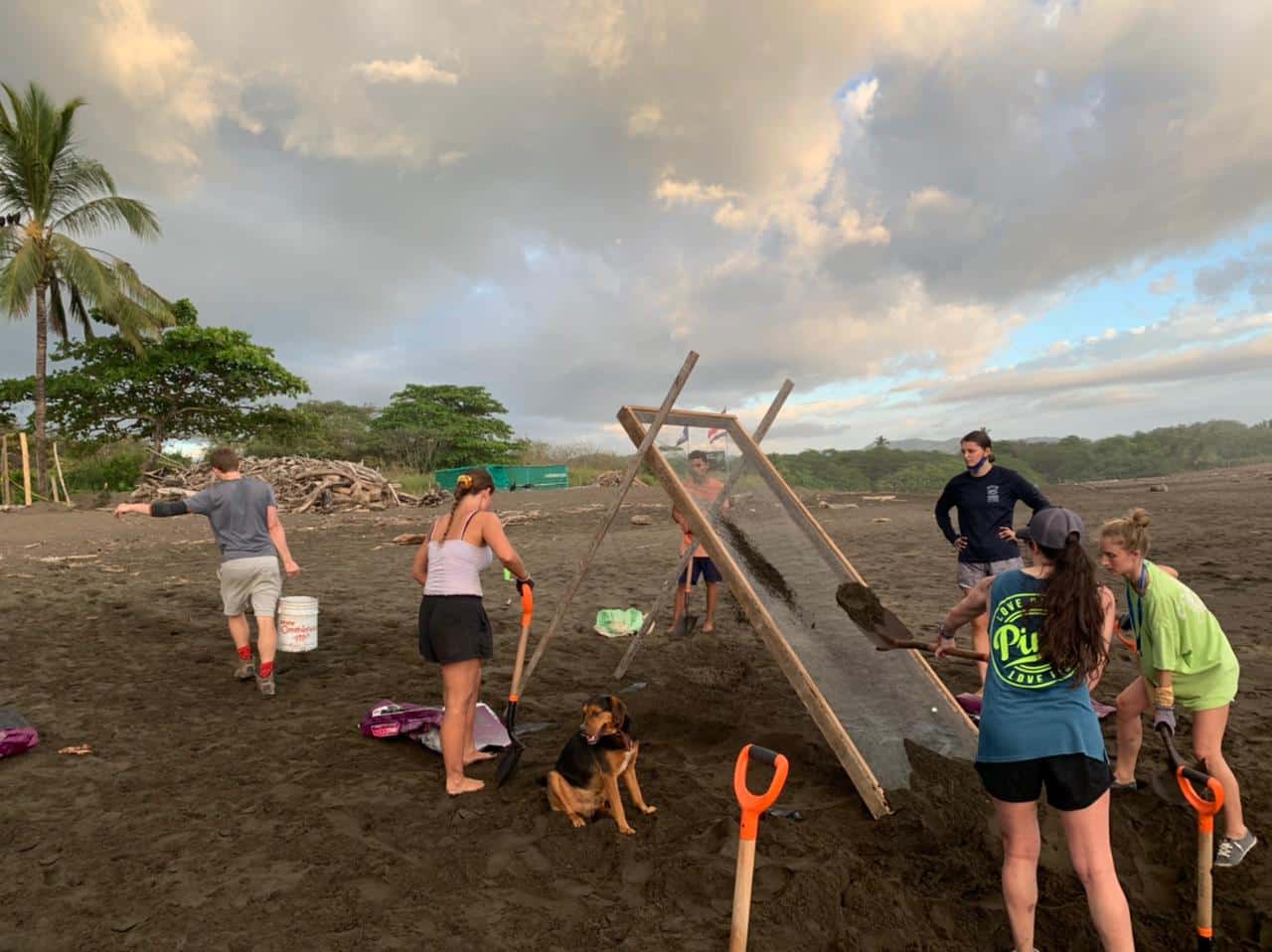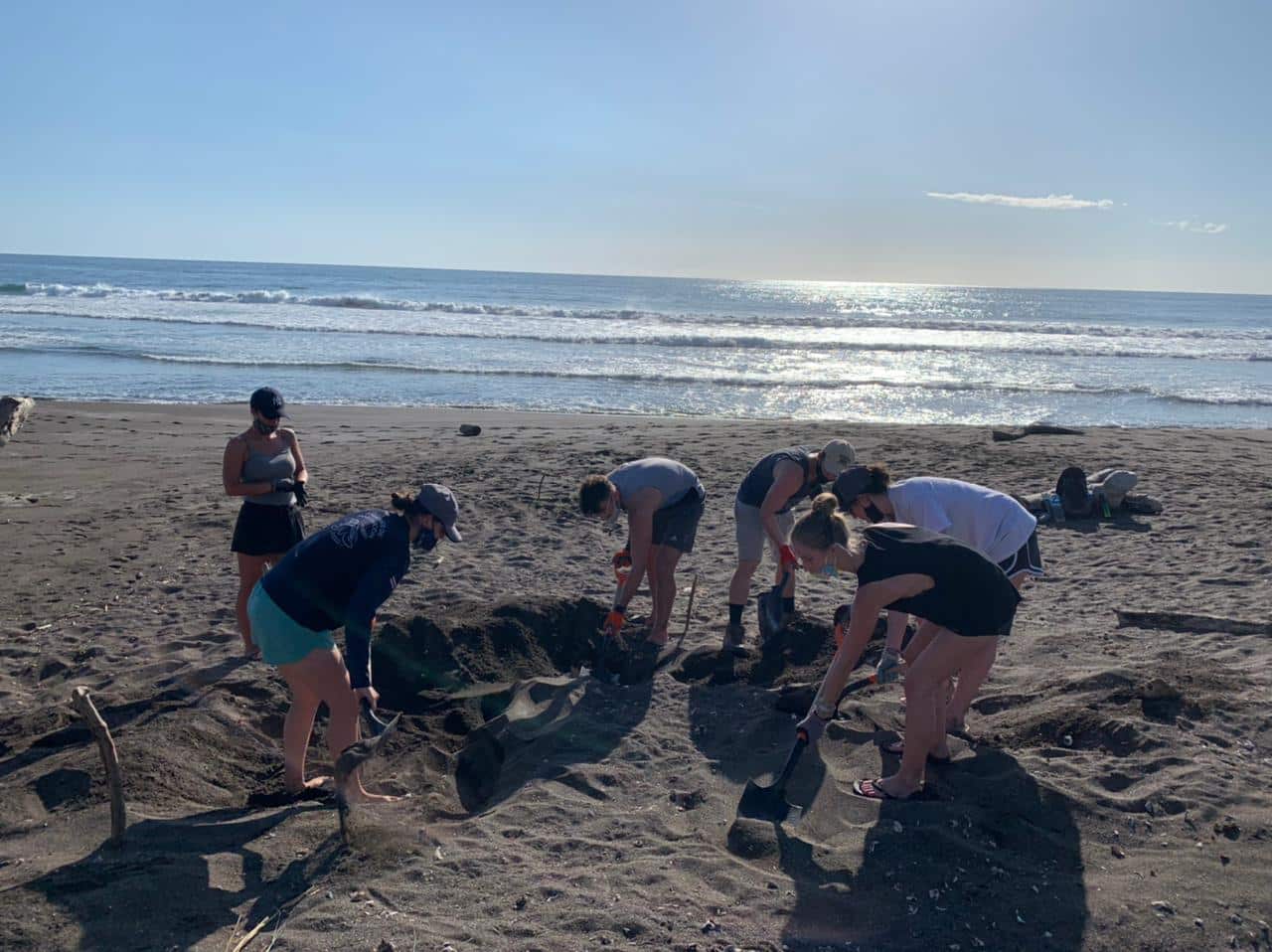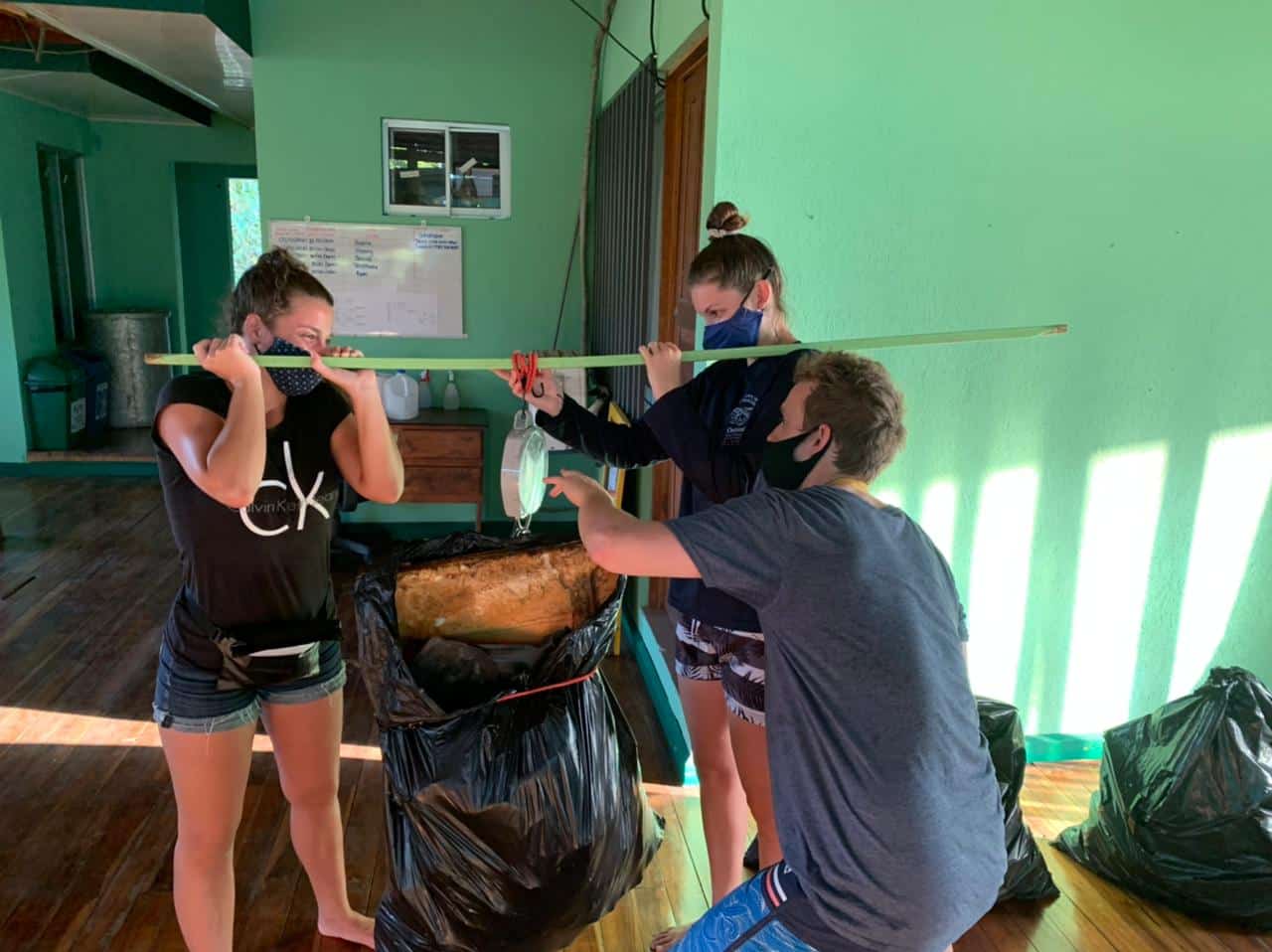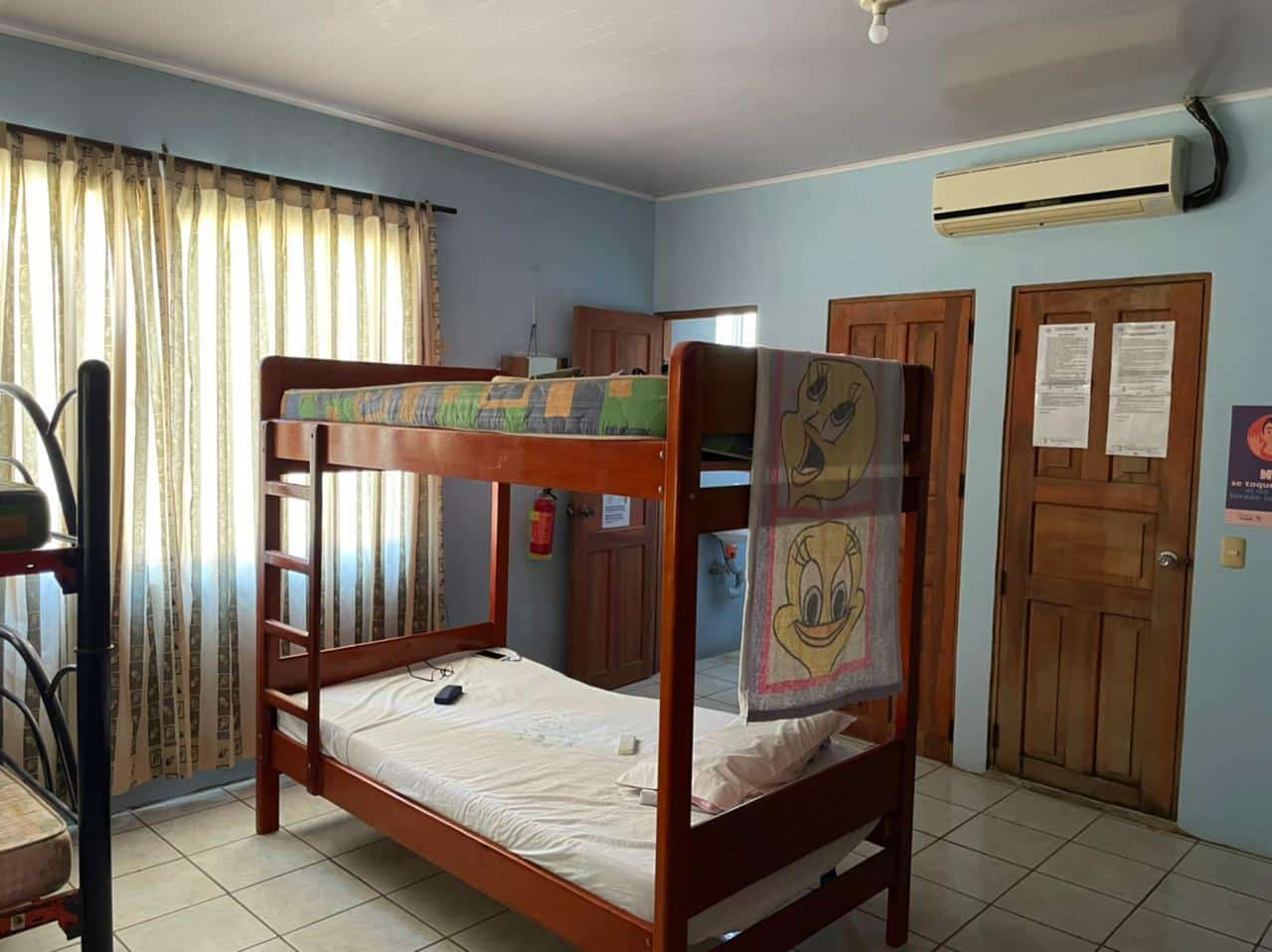Engagez-vous au Costa Rica pour la protection des tortues marines. Un expérience fabuleuse dans un pays précurseur pour la protection de l’environnement en Amérique centrale.
Protection des tortues de mer au Costa Rica
Les tortues de mer sont devenues le symbole de la protection de nos océans. Observer ces animaux marins pondre leurs œufs sur les plages est une expérience inoubliable. Contribuer à leur protection sur le terrain est une fabuleuse opportunité. En tant qu’écovolontaire dans ce projet de conservation, vous aiderez à protéger les tortues marines sur la côte Pacifique du Costa Rica.
Une réserve marine et terrestre de 500 hectares
Le projet protection des tortues marines au Costa Rica a été créé il y a plus de 30 ans. Son objectif est de protéger l’écosystème marin et les zones de reproduction des tortues de mer. Le site du projet comprend une zone de plus de 500 hectares composée d’une réserve marine et terrestre. Vous évoluerez dans un paysage magnifique constitué de petites baies, de belles plages, des forêts de mangroves et d’innombrables petites îles.
Tortues olivâtre, luth et verte
La mission de volontariat se déroule à l’endroit des arribadas . On entend par arribadas la nidification massive et synchronisée de la tortue olivâtre. Il s’agit d’un phénomène naturel fascinant qui ne se produit que quelques fois par an. En effet, pendant la haute saison, des mois d’août à janvier environ, une moyenne de 200 000 tortues viennent sur les plages, faisant de cette région le deuxième plus grand site de reproduction de tortues marines au monde. Outre la tortue olivâtre, deux autres espèces de tortues nichent à cet endroit : la tortue luth et la tortue verte.
Le rôle de l’éco volontaire auprès des tortues marines
Pour soutenir la protection des tortues de mer, les volontaires effectuent des patrouilles nocturnes le long des plages du Pacifique. Leur rôle est de repérer les tortues marines, d’observer leur comportement et de s’assurer que leurs nids soient protégés. Ces patrouilles de nuit sont toujours effectuées en équipe avec d’autres volontaires et/ou avec le personnel local. Les tortues marines ne viennent sur les plages qu’après la tombée de la nuit, entre 18 heures et 6 heures du matin. Bien que les tortues de mer viennent sur les plages de cette réserve toute l’année, la haute saison se situe entre août et janvier.
Protection des oeufs des tortues
Pour protéger les œufs des tortues de mer des prédateurs naturels et humains (les œufs de tortues sont commercialisés comme des mets délicats) et pour assurer la croissance de la population tortues dans le Pacifique, les volontaires prélèvent certains œufs. Ces oeufs sont conservés dans des incubateurs jusqu’à l’éclosion des bébés tortues après 45 à 60 jours. Après une reproduction réussie, les bébés tortues sont relâchés.
En plus des patrouilles de nuit, les bénévoles participent, pendant la journée, au nettoyage des plages et ramassent les déchets qui s’y trouvent, afin de préserver la propreté des sites de reproduction des tortues de mer.
A savoir pour le volontariat
- Les cycles naturels sont imprévisibles. Par conséquent, l’organisme ne peut vous donner aucune garantie quant au nombre de tortues de mer observé pour une période de participation donnée.
- Les tâches confiées aux écovolontaires peuvent varier. Elles dépendent de différents facteurs tels que le nombre de volontaires, le temps, la saison, les besoins actuels du projet, ainsi que la motivation… Tous les volontaires ne peuvent pas s’impliquer pleinement dans toutes ces tâches.
Dates
- Minimum 2 semaines, toute l’année
- Les tortues marines viennent sur les plages de cette réserve toute l’année, mais la haute saison des tortues marines se situe entre août et janvier.
Tarifs
- Frais de candidature : 150 €
- Coût du programme : 915 € (pour un séjour minimum de 2 semaines)
- Semaine supplémentaire : 290 €
Inclus dans le prix
- Chambre partagée dans la maison des volontaires
- Petit-déjeuner, déjeuner, dîner
- Accueil à l’aéroport de San José avec 2 nuitées à San José
- Transfert de l’hébergement à San José au terminal de bus pour le voyage vers le site du projet (*le billet de bus n’est pas inclus)
- Conseils professionnels en anglais
- Traduction de vos documents de candidature
- Stage de bénévolat au Costa Rica
- Soutien anglophone dans le pays
- Manuel Costa Rica
- Guide interculturel
- Numéro d’urgence 24/7
- Informations sur une assurance voyage adaptée
- Certificat de participation
Non Inclus dans le prix
- Billets d’avion et assurance voyage
Hébergement
Les volontaires vivent dans des chambres partagées au sein de la maison des volontaires, dans un cadre magnifique au coeur de la nature et entouré de belles plages. Chaque chambre est équipée de lits superposés. Il y a des douches et des toilettes avec l’eau courante. La maison des volontaires dispose également d’une terrasse spacieuse, de l’électricité, de l’eau potable, de la WIFI et d’un bon signal pour les téléphones portables.
Le programme comprend le petit-déjeuner, le déjeuner et le dîner. Les cuisiniers locaux préparent principalement des plats locaux, et il y a également des options végétariennes et végétaliennes.
Localisation
Ce programme de volontariat pour la conservation des tortues est situé sur la magnifique péninsule de Nicoya, dans la province de Guanacaste, au nord-ouest du Costa Rica. San José, la capitale du pays, est à environ 5 heures de route. Cette région est l’une des plus belles du pays, avec une végétation luxuriante et des plages de rêve. Le projet sur les tortues de mer se trouve à proximité de Nosara, une station balnéaire chic. Nosara est une petite ville ensoleillée avec des plages de sable et des couchers de soleil à couper le souffle. Elle dispose d’une bonne infrastructure avec des supermarchés, des restaurants, des magasins et des activités de loisirs.
Tous les avis sur les missions South America Inside

L’agence partenaire
Le partenaire est une agence interculturelle fondée en 2003, par Marion, une Allemande installée au Chili. Marion s’est spécialisée dans l’organisation de voyages solidaires et participatifs, de séjours en écovolontariat, mais également de séjours linguistiques et de programmes éducatifs dans toute l’Amérique latine. Cette agence propose des mission au Chili, au Costa Rica, au Nicaragua, en Equateur… Que vous soyez étudiant, professionnel ou retraité, ses séjours s’adressent à ceux qui veulent vivre l’Amérique latine autrement qu’en simple touriste. Tous les séjours avec South America Inside

